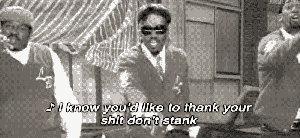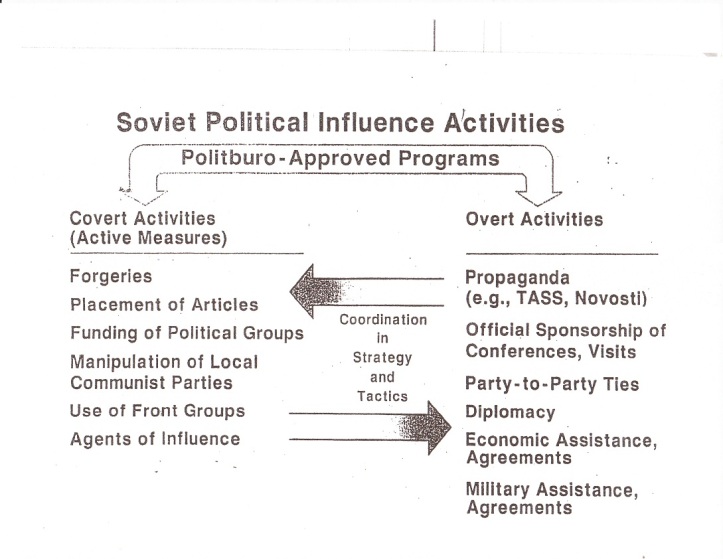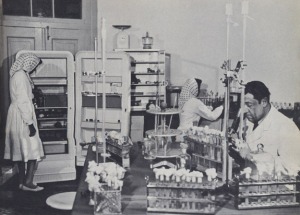President Putin’s ‘letter’ in the New York Times is nothing more than empty Russian words. The letter attempted to place Russia and Vladimir Putin on the ‘highroad’ at the expense of running the US into the gutter. One need not look further than the consistency of positive things to say about Russia balanced against the complexities of US Foreign Policy to see this, but if one also looks at Russia’s international meddling, then one gets to see the real intentions behind this letter.
The Meaning of Is Is
It is best to understand that letters, like this, are a practice of public diplomacy. Nicholas J. Cull, Director of the Master’s Program in Public Diplomacy and Professor of Public Diplomacy at the USC Center on Public Diplomacy wrote about the history of this the term Public Diplomacy in his essay, Public Diplomacy’ Before Gullion: The Evolution of a Phrase. Cull’s findings took him back to 1965 to find the first instance of this term being used. He quoted the brochure for the Edward R Murrow Center of Public Diplomacy:
Public diplomacy… deals with the influence of public attitudes on the formation and execution of foreign policies. It encompasses dimensions of international relations beyond traditional diplomacy; the cultivation by governments of public opinion in other countries; the interaction of private groups and interests in one country with another; the reporting of foreign affairs and its impact on policy; communication between those whose job is communication, as diplomats and foreign correspondents; and the process of intercultural communications.
Public diplomacy is not in a craft that is only applied on its own. Public Diplomacy is a facet of the practice of strategic communication and is applied with a host of other diplomatic practices.
Wikipedia summarizes this discipline:
Strategic communication can mean either communicating a concept, a process, or data that satisfies a long term strategic goal of an organization by allowing facilitation of advanced planning, or communicating over long distances usually using international telecommunications or dedicated global network assets to coordinate actions and activities of operationally significant commercial, non-commercial and military business or combat and logistic subunits. It can also mean the related function within an organization, which handles internal and external communication processes. Strategic communication can also be used for political warfare.
While Wikipedia may not directly correlate the practice of public diplomacy and strategic communication, the sensitive, but not classified document titled, U.S. National Strategy for Public Diplomacy and Strategic Communication by the Strategic Communication and Public Diplomacy Policy Coordinating Committee does confirm it. To quote the committee’s conclusion,
Public diplomacy is, at its core, about making America’s diplomacy public and communicating America’s views, values and policies in effective ways to audiences across the world. Public diplomacy promotes linkages between the American people and the rest of the world by reminding diverse populations of our common interests and values. Some of America’s most effective public diplomacy is communicated not through words but through our deeds, as we invest in people through education, health care and the opportunity for greater economic and political participation. Public diplomacy also seeks to isolate and marginalize extremists and their ideology. In all these ways, public diplomacy is “waging peace,” working to bring about conditions that lead to a better life for people across the world and make it more difficult for extremism to take root.
While strategic communication and public diplomacy are American definitions to these concepts, it is a practice that has been called by other names and practiced by other countries. G Edward Griffin interviewed KGB Defector Yuri Bezmenov about his experiences as a Soviet propagandist. Bezmenov went into a bit more detail about the Soviet’s use of influence, as explaining the discipline known as active measures. Russian foreign communications policy can be understood by this model:
The reason for assuming that this model is still in play is assumed from a decree signed by Former Russian President, Boris Yeltsin in 1993. A translated excerpt of the decree appeared in the article, The KGB & Its ‘Successors written by J Michael Waller, which appeared in the April-May issue of Perspectives, an academic journal published by the Institute for the Study of Conflict, Ideology, and Policy read:
The system of bodies of the VChK-OGPU-NKVD-MGB-KGB-MB [All-Russian Extraordinary Commission to Combat Counterrevolution and Sabotage (Cheka)-United State Political Directorate-People’s Commissariat of Internal Affairs-Ministry of State Security-Committee for State Security-Ministry of Security] has proved unreformable. The attempts at reorganization that have been made in recent years were basically superficial and cosmetic. Up to the present moment the Russian Ministry of Security lack a strategic concept of ensuring Russia’s security. Counterintelligence work has deteriorated. The system of political investigation has been mothballed and could easily be recreated.
Waller went onto expand upon the unpacking and recreation of these bodies while serving as a Senior Fellow with the American Foreign Policy Counsel. Again, in 2007 Waller stated that indeed the Russians never reformed and has every intention of us treating the US as their foe. As of September 2013, Waller still sees the hostility in Russia’s actions.
Waller is not the only one that feels this way, as it has been detailed in past entries; however, he is one of the few qualified in both strategic communication and Russian foreign policy that can contextualize the Russians play on an academic and professional level. Namely, Stratfor, a private intelligence company working out of Austin, Texas has also catalogued the resurgence of Russia while noting their media strategizing. A recent analysis from the company stated:
Remember that all public statements now are meant to obscure real plans and intentions. They are intended to shape the environment. Read them, but do not look at them as anything more than tactics.
The issue has morphed into a U.S.-Russian confrontation. Russia’s goal is to be seen as an equal of the United States. It wins if it can be seen as a protagonist of the United States. If it can appear that Washington has refrained from an attack because of Russian maneuvers, Moscow’s weight increases dramatically. This is particularly the case along Russia’s periphery, where doubts of American power abound and concern over Russian power abides.
Pounding Putin’s Paragraphs
Buzzfeed reported that Putin’s ‘letter’ was placed by Ketchum, a PR Firm that has a history of placing pro-Russian news articles large western circulated news media outlets.
Ketchum is the main PR firm used by the Russian government. Using documents publicly filed with the Department of Justice, ProPublica showed last year how Ketchum places pro-Putin op-eds under the bylines of “seemingly independent professionals” in various news outlets like CNBC and the Huffington Post.
As stated in the entry titled, Syria’s Strategic Angles, Russia has got some goals. To achieve those goals, they have plans of action. Perception management is one of those plans of action, as noted in the above section. Now that the foundation for understanding has been laid, we can now explicate and question Putin’s letter. This analysis will be done by paragraph(s). It will be assumed that the reader will be able to look at the article for the claims I reference.
¶1) Putin finds it important, at this distinct time, to take his argument to the people; this is not the first time the Russians have done this. Why they do it should be obvious to the reader by now, but to question the integrity and intensions of Mr. Putin, one must ask, why now?
¶2-¶4) Putin states that the US should abstain from military action against Syria. In these paragraphs he attempted to leverage the United Nations, and the stability to international relations that it provides. He also vaguely stated that the United Nations fate was at risk. Well Mr. Putin, we are not buying your argument. In regards to this conflict, Russia has stalled talks in the UN and unnecessarily protracted any chance of a diplomatic resolution. This isn’t the first time Russia has stood in the path of the international community’s attempts to restore human rights and bring those to justice who have violated them. A couple years back Russia tried to block a UN vote on human rights abuses by in Chechnya too.
¶5) While a potential strike has a chance to inflict collateral damage, we would rather watch a diplomatic solution take place ourselves, but we can’t forget the seriousness of this situation. A diplomatic solution could best be achieved if Russia would work with Syria and the international community to help bring Assad to justice. The loss of innocent lives has grown since the beginning of these series of tragedies. This was not done by the hand of the US, but by the hand of a tyrant attempting to cling to power without regards to the will of the people and those willing to help keep him there. While you attempt to shed light on the Israeli-Palestinian conflict, we must also keep in mind that it was part of Russian foreign policy to concoct and promote anti-Zionism as a means to curb British influence. The information warfare efforts of the Soviet Union, in that time, have had far reaching consequences in the attempts to reach peace between the parties. Russia should apologize for dividing the people of this region, and confess to the manipulation of world perceptions by using deceit.
¶6) If Syria is not witnessing a battle for a democracy, why did people start rising up to fight for reforms? Why are pro-democracy forces still in the fight? The Russian government has been consistent in undermining activists though. The Syrian government has been reported as being a big financing arm of the Muslim rebels in Iraq. If the Syria never took this role to counter our efforts in Iraq, then they wouldn’t be dealing with their chickens that came home to roost.
¶7) Have the Syrian rebels have used what they learned in Iraq and applied it at home? That seems to be the case. The case of the spin off from Libya was leveraged to make America’s actions look bad, but at the same time there is a consistency of Russia benefiting from that chaos. Russia has managed to benefit in arms deals with both Syria and Libya. When one reads an article about forged documents and Russian boats going to Libya, one begins to suspect if Russia is arming both sides (government and rebels) of the conflict in Libya. Hiding weapons amongst all that barley seems more likely. Reminds me of stories of Russian weapons shipments disguised as “Printed Material” for the University of Dhaka. Maybe that is why offers of trading Edward Snowden for Viktor Bout have begun to surface? (FOR THE RECORD, THAT IS A HORRIBLE IDEA!)
¶8) If Russia advocated for a peaceful dialogue, then why did they Russia and China walk out of the talks regarding a humanitarian resolution in Syria back in August? It seems as if Russia only wants to utilize the international system when it suits them, despite all the indiscriminate killing of Syrians.
¶9) The need for clarity, truth, and assuring our information is paramount. We couldn’t agree more, but sometimes our capabilities allow us to assure information before the capabilities of others allows it to assure it for them. The US took the lead, 33 nations signed on to condemn Syria, and now the UN report is pointing towards the Syrian government being at fault. UN Chief, Ban Ki Moon called this act a “war crime”.
¶10) America is serious when it comes to protecting the stability of its allies when their homelands come under siege by radical militants backed by foreigners. We understand our perception problems, but we also know that we aren’t the only reason for them.
¶11) Afghanistan wouldn’t be reeling, if the Soviets never showed up in the first place! Let’s look at the pictures of pre-Soviet occupation of Afghanistan.
¶12) We understand that military actions might consume innocent people. This is why we give you a warning to leave!
¶13) How is it that this Russian front group can champion Russia as crusaders for nonproliferation, but refuse to acknowledge the modernization and deployment of Russian nukes and the lack of enthusiasm to reduce their arsenal as President Obama did?
¶14) The language of force is necessary. We understood this when we faced down the NAZIs together. The NAZIs killed their own people in mass. We must stand against Assad doing that too!
¶15-17) Judging by the feedback of the UN report, the Syrian government seems to be at fault. Hopefully, Russia will show the resolve of their integrity and publicly and privately hold Assad accountable.
¶18) President Putin, I would like to introduce you to this kid name Jackson. He is going to teach you about American Exceptionalism and why it is.





